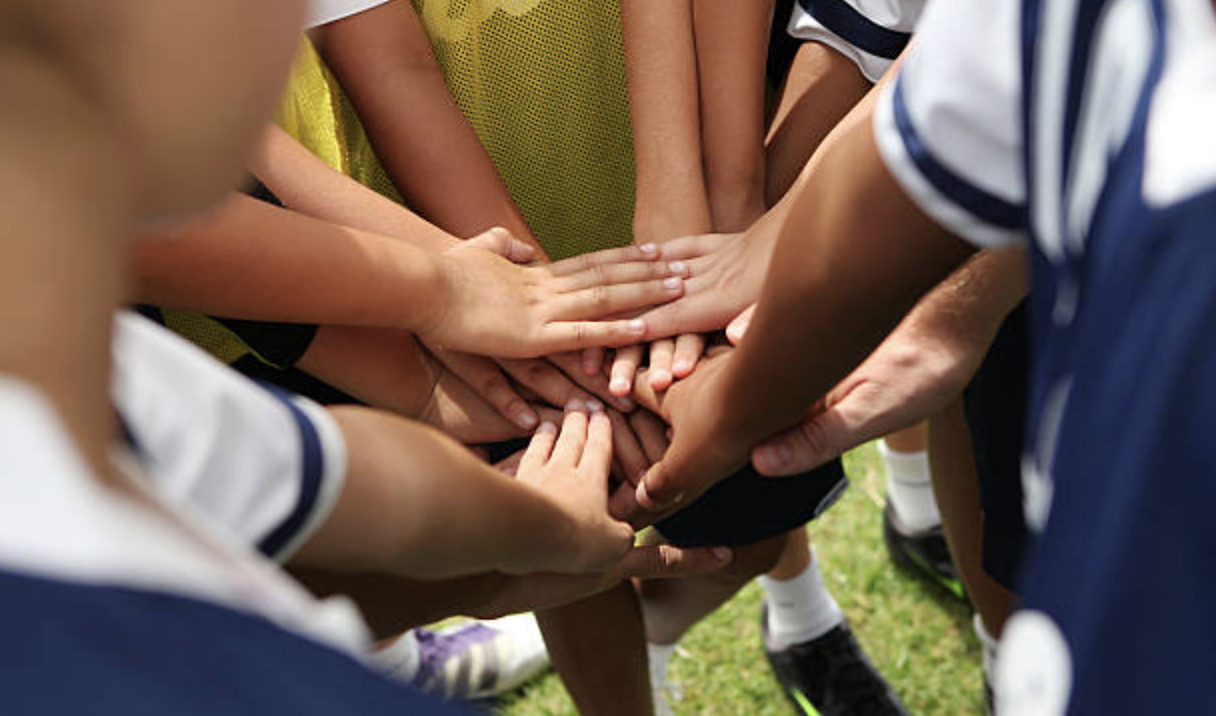|
By Caroline Roberts, EDC Intern Being a part of a team can be such a special experience. A group of individuals working together to achieve the same goals: winning and improving. Amidst all of the time and effort that is put in together, you start to become more like a family than a team. This means that you know and care for your teammates on a different level. Oftentimes, disordered eating habits are prevalent in athletes. In fact, one study found that 25% of female athletes reported disordered eating behaviors (Greenleaf et al., 2009). If this is the case for one of your teammates there are things you can do to help! 1. Pay attention You know your teammates well. You know their normal attitudes, and how they normally play at practice or in a game. If you notice that they seem withdrawn from team conversation and partake in self-isolating behavior, you may want to check in with them. Additionally, if you notice they are showing signs of fatigue, dizziness, are excessively sore or injured these are also key indicators that they may be experiencing difficulties eating. These are only some of the many signs and symptoms that can indicate a potential eating disorder. The most important thing you can do is pay attention to any changes in your teammates' usual behavior. They may be struggling silently, and having a teammate notice that, can go a long way. 2. Treat them as a whole person, not just as an athlete In the case that a teammate comes to you for support, the most helpful thing that you can do is listen. Not everyone understands the ins and outs that come with an eating disorder, so it’s okay if you’re not an expert! However, listening to your teammate is something that can go a long way in helping them recover. It may seem like a form of tough love to say things like, “If you don’t eat, you won’t play” or “If you don't eat for yourself, do it for the team,” however these are NOT constructive statements. If your teammate trusts you enough to open up to you, they don’t want to feel pressured into recovering just so that they can play a sport. They want to know that they have your support for whatever steps are necessary in their recovery process. 3. Offer support I know this tip seems rather obvious, but there are many different forms of support that are sometimes overlooked! Every person is different so the type of support one person might seek is different from the type of support that someone else needs. For some, eating meals with a teammate would be beneficial. When you’re on a team, you typically eat a lot of meals together. Making sure you sit and eat with your teammate lets them know that they aren’t alone in this process. For other people, they may want support in the form of spending quality time with you. Doing things outside of playing your sport and outside of eating meals, can be a healthy distraction from thinking about the different triggers of their disorder. The best way to find out what kind of support your teammate needs from you, is to talk to them about it and remain patient and consistent in your efforts! 4. Ask for help Eating disorders can be very private for some people. So while you should respect their privacy, it’s okay to acknowledge that you could also use some help while you support them. Turning to a coach, therapist, or trusted adult is a great outlet for helping you navigate the situation! The Eating Disorder Center has coaches and therapists who have extensive experience working with athletes struggling with eating and body image struggles. References: Greenleaf, C., Petrie, T. A., Carter, J., & Reel, J. J. (2009). Female collegiate athletes: prevalence of eating disorders and disordered eating behaviors. Journal of American college health: J of ACH, 57(5), 489–495. https://doi.org/10.3200/JACH.57.5.489-496 For more blogs related to athletes, check out: Schedule a free 15 min consult for eating disorder therapy in MD, VA, DC, NY, FL, or recovery coaching worldwide. Click here. The Eating Disorder Center is a premier outpatient eating disorder therapy center founded by Jennifer Rollin. We specialize in helping teens and adults struggling with anorexia, binge eating disorder, bulimia, OSFED, and body image issues. We provide eating disorder therapy in Rockville, MD, easily accessible to individuals in Potomac, North Potomac, Bethesda, Olney, Silver Spring, Germantown, and Washington D.C. We also provide eating disorder therapy in Arlington, Virginia and virtually throughout Virginia. Additionally, we offer eating disorder therapy virtually in New York (NYC), Florida, and California. We provide eating disorder recovery coaching via Zoom to people worldwide. Connect with us through our website at www.theeatingdisordercenter.com
Comments are closed.
|
The Eating Disorder CenterWe are a premier outpatient eating disorder therapy center in Rockville, Maryland. Archives
July 2024
Categories |

 RSS Feed
RSS Feed